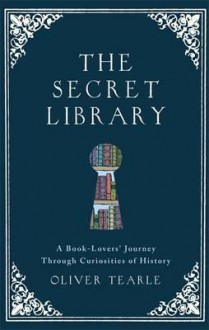
I think this is one of those books I just stumbled across somewhere (probably Mysterious Books) that was inexpensive enough, and caught my attention with the title (spoiler alert: not a ghost story). I'd never heard of Timothy Fuller and I just lost about 2 hours of my life trying to find out something about his career. I finally found a standard biography on an Italian website (which has been added to the author's bio here on BookLikes, with full source credit), and the following, which I found by, in desperation, trolling images in hopes that I'd find a pic of the "About the author":

Those were the golden days, eh? When you could be outwardly snarky and a tiny bit sexist in your back-of-the-cover bio and nobody thought anything of it? Well, the story itself goes a bit further, as one of the main characters, and suspects is a ... wait for it...
Chinaman.
Yep, fellow golden age mystery lovers, Fuller was a rule breaker. And maybe just a teensy bit racist, but I can't feel confident about that. The book has a large satirical streak, is self-referential, and openly acknowledges the trope and stereotype of the Chinaman in mysteries. So, while I flinch just seeing the word Chinaman, I suspect in the context of this book it's not bigotry on the part of the author, just part of the story's self-referentialism.
Now that I've done such a good job of selling it, I do have to say it's worth reading. It's fun, it's well written, and it's sprinkled with surprising moments of social commentary. For example:
We've just been discussing the public reaction to a murder of this kind. There's bound to be more excitement than sorrow. Quite usual, perhaps, but is it the result of the popularity of mystery fiction? Which came first? Was the public educated to its interest by the mystery story or was the mystery story the result of a public demand for more mysteries?
or this rather profound, yet short-sighted view of one of the characters:
There won't be a new type of crime and therefore the mystery story is on the way out. There've been three stages of its development. Novelty, a believable realism, and lastly the fad of the puzzle. The novelty couldn't last, realism went out with their mass production, and a mere puzzle can't stand up for long in book form.
And this take-no-prisoners observation:
Obviously Burton and Day had exhausted their talk about Newbury's murder during the course of the evening and until something new developed Jupiter was ready to forget it himself. The ease with which he could put it out of his mind was not surprising to him. If the human ability to forget could cause a second World War it was no trick to abandon a couple of murders.
There's a bit of an Edmund Crispin vibe to the writing and setting (albeit in Boston rather than Oxford) although it's not as tongue-in-cheek as Crispin. It's a slim tome, only 127 pages, but it's a full mystery; any longer, and frankly, I think there'd be problems with pacing.
The plotting was superb; not precisely fair-play, but close enough that the reader doesn't feel cheated. I had not. a. clue. The ending was fantastic but not unique (although in 1932 it might have been).
It turns out that this is the 2nd book in a series centered on Jupiter Jones, the protagonist. The books are out of print, which is a shame - they're definitely worthy of being amongst the reprinted classics in my opinion (at least, this one is). Luckily, they seem to be easily and affordably available online as used hardcovers and paperbacks. I'll be seeking out the rest of the books in the series. Definitely recommended for the Golden Agers out there.


 Log in with Facebook
Log in with Facebook 













